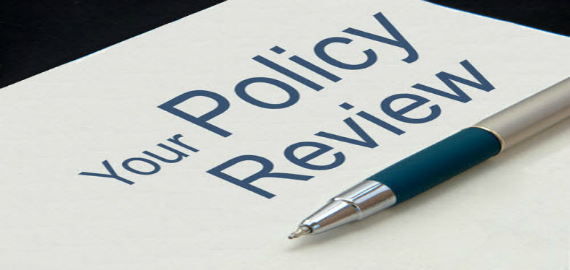
If you’ve attended one of my liability classes, you know the emphasis I place on reviewing your K9 policy periodically and annually at a minimum – as a supervisor, trainer and handler – even if no changes have recently occurred to your knowledge. You also know I’m a big advocate of the “Lexipol K9 policy” because I believe it is a good standardized policy – one that I adopted and slightly modified years before Lexipol was founded. The architect of the original policy is Bruce Praet, an attorney who defends law enforcement and is a former K9 handler – and he’s one of the founders of Lexipol.
I’ve suggested over the years that it’s good for you – handler, supervisor and trainer – to review your policy whether it’s the Lexipol version or your own. The additional benefit of any policy you implement if not your own originally is that it can be tweaked based on your policies, procedures and philosophies. As you may know, I don’t agree with all policy sections – and I added and modified certain sections within our policy when I supervised and often make note of these changes when I review a policy. Others disagree. However, that’s part of the review process.
Recently, I was asked about a new change in a policy that required a dog to be removed immediately after a bite regardless of the circumstances. I said “That doesn’t sound right” and I later made an inquiry to learn the change had been made but should not have been. It happens.
I was once reviewing a policy for an agency in the process of starting its own K9 program. I was diligent with my review even though I’d looked at the same policy a few months before, and found a change – a deletion – that had occurred mistakenly. It happens.
I have reviewed other policies upon request and while defending handlers and agencies as an expert witness. I learned that periodic and independent reviews are not normally conducted as a matter of routine and should be to keep updated with the policy itself as well as the potential changes in the law, the use of force, and/or national standards. I recommend you ask someone you trust and respect from a neighboring agency to review your policy on occasion if your policies are not identical.

“We” sometimes fail to review our K9 policy periodically because we believe we already know what’s in it. And, for the most part, we do. However, we also quickly learn that because we believe we know we sometimes fail to review and overlook or forget about certain sections or changes. If you don’t take ownership of your policy, you may miss something relevant that might get you in trouble down the road.
Take care, be safe and make every day a training day…
Bill Lewis II
This “reason” was first shared on April 27, 2016.

“The best time to get out of trouble is before it happens.”
“Trouble” isn’t always related to incidents or predicaments that directly result in lawsuits, claims or discipline. Often times, our actions or inactions that are missed, deliberately overlooked or downplayed may lead to nothing or can later lead to mistakes or bad incidents with minimal to serious repercussions. A reason we get in trouble can be minor or simple at first glance – or even serious – but a combination of these factors can often have disastrous consequences.
These “reasons” are provided periodically as a collection in-progress based on actual incidents and real attitudes as well as feedback received at HITS, the CNCA Training Institute, and the “Canine Liability 360” classes. As Gordon Graham says, “We haven’t found new ways to get in trouble.” So, as the list progresses, you may or may not read something familiar to you that you have personally experienced or seen others encounter. If you encountered or heard about it, did you learn from it?
